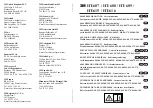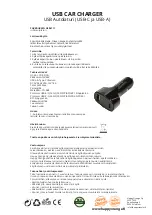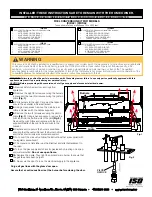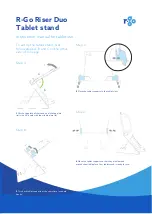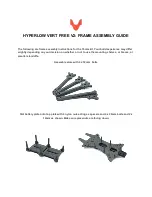
Tilt ‘N Plug Jr.
User’s Guide
400-0623-001
7
7. Operation
7.1 Opening and Closing the Tilt 'N Plug
The Tilt ‘N Plug Jr. will open easily when the top is pressed down
and then released.
When the Tilt ‘N Plug Jr. is not in use, simply press the top down
until it is level with the surface of the table and then release. The
unit will remain hidden until needed again.
7.2 Power/Signal Connections
Connect external devices to the appropriate connector on the Tilt
‘N Plug Jr. Remember, the devices plugged into the AC power
connectors should not draw more than 5A AC.
8. Troubleshooting Guide
The Tilt ‘N Plug Jr. supplied was carefully tested and no problems were detected. However, we would like to offer the following
suggestions:
Symptom
Resolution
Signal quality is poor.
Please make sure that the highest quality cables are used.
The TNP is a passive unit and does not alter signals in any way. If there is suspected problem
with the signal quality, check the quality of the cables coming into the TNP and connecting to the
output of the TNP. If they are of low quality or improperly assembled, this will affect the overall
quality of the signal.
Damaged power cord
Make sure that no cable or power cord is damaged or pinched.
If there has been damage, do not use the Tilt 'N Plug. Please call the Altinex Customer Service
Department at (714) 990-2300 to have the unit repaired.
Unit raises too slowly
If the unit does not rise into position correctly, check the service loops for the signal and power
cords on the bottom of the unit. If the service loop is too small, the cables will counteract the
spring trying to raise the unit into position.
Unit tilts up too fast
If the unit rises into position too fast, check the service loops for the signal and power cords on
the bottom of the unit. If the service loop is too large and the cables are putting upward pressure
on the unit, the unit will tilt up too fast.
Unit does not close all
the way
If the unit does not close flush with the bezel, check the service loops for the signal and power
cords on the bottom of the unit. If the service loop is putting upward pressure in the unit, the unit
will not be able to seat all the way down.








